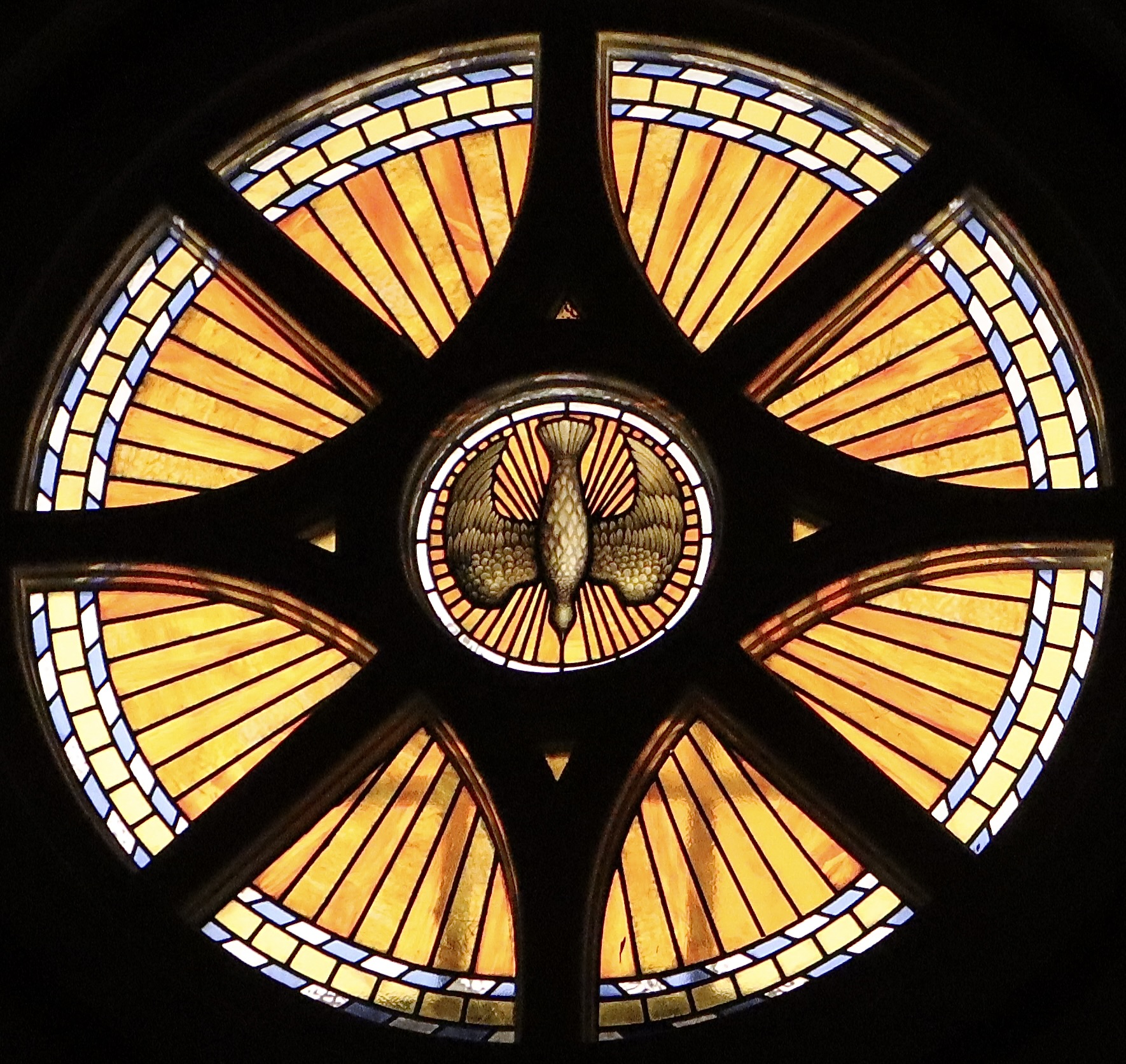‘Let us keep the flame of faith alive through prayer and the sacraments.’ Pope Francis
God, understanding our human nature, gives the Church the gift of the sacraments, visible signs of invisible graces. The sacraments manifest God’s love for us in tangible ways that we can experience. Through the sacraments he draws close to us. All sacraments are an encounter with Him. To receive any of the sacraments explored on this page, please contact your local parish priest or parish office.
To access resources for Sacramental Preparation please click on the 'Access Files' button below.

‘Unless a man is born again of water and the Holy Spirit, he cannot enter into the kingdom of God.’ (John 3:5)
Baptism is the gateway to the life in the Spirit. As the YouCat (Youth Catechism) puts it, baptism: "unites us with Jesus Christ, incorporates us into his redemptive death on the Cross, thereby freeing us from the power of Original Sin and all personal sins, and causes us to rise with him to a life without end." YouCat Question 194
The water used to baptise symbolises new life and cleansing.
‘The Spirit you received is not the spirit of slaves brining fear into your lives again; it is the spirit of sons, and it makes us cry out, “Abba, Father!”’ (Romans 8:15)
Confirmation is the sacrament that completes the sacrament of baptism and although children often make their First Holy Communion before they are confirmed, when adults are baptised, they are then immediately confirmed, before receiving Holy Communion for the first time.
The Catechism tells us that:
‘ … the sacrament of Confirmation is necessary for the completion of baptismal grace. For "by the sacrament of Confirmation, [the baptized] are more perfectly bound to the Church and are enriched with a special strength of the Holy Spirit. Hence they are, as true witnesses of Christ.’ (CCC 2:1285)


‘There is nothing so great as the Eucharist. If God had something more precious He would have given it to us.’ Saint John Vianney
In Holy Communion, we receive the Eucharist: the body and blood of Jesus in the form of bread and wine. This amazing gift was instituted at the Last Supper, when Jesus shared the first eucharist with his apostles, and it is the same sacrament that we celebrate today in the Holy Mass.
‘The Lord Jesus, on the night he was betrayed, took bread, and when he had given thanks, he broke it and said, “This is my body, which is for you; do this in remembrance of me.”’ (1 Corinthians 11:23-24)
The Eucharist is so powerful and important to Christians that it is referred to as ‘The source and summit of the Christian Life.’
‘Confession is an act of honesty and courage - an act of entrusting ourselves, beyond sin, to the mercy of a loving and forgiving God.’ Pope St John Paul II
Because Jesus’ mission on earth was to free us from our sins, the sacrament of confession continues this work today. Through the ministry of the priest, the sacrament of reconciliation (or confession) frees us from our sins. Even though our baptism unites us with Christ and his victory over sin and death on the cross, we still sin, and this is where the sacrament of reconciliation can help us to repair our relationship with God and our fellow man, offering us forgiveness for our sins and setting us free. Jesus himself instituted this sacrament in his earthly ministry when he said to his apostles:
‘Receive the Holy Spirit. If you forgive the sins of any, they are forgiven; if you retain the sins of any, they are retained.’ (John 20: 22-23)

‘Priestly ordination is administered as a means of salvation, not for an individual, but rather for the whole Church.’ St Thomas Aquinas
The Sacrament of Holy Orders is conferred when a man is ordained priest by a bishop. Through this ordination, Catholic priests share in Jesus’ priesthood and can administer all of the sacraments through his power. This is referred to as the priest acting ‘in persona Christi’, meaning ‘in the person of Christ’. Deacons also receive the Sacrament of Holy Orders when they are ordained to also serve the Church and administer some of the sacraments.
‘The priest continues [Christ’s] work of redemption on earth.’ St John Vianney
‘Marriage is the most beautiful thing that God has created.’ Pope Francis
Marriage, or the Sacrament of Matrimony, is the promise made between a man and a woman to love one another, before God and the Church. Because this bond is formed by God and is sacramental, it binds the man and woman together until death. In this way, the couple becomes ‘no longer two but one’ (Matthew 19:6) and in this way they are called to be a sign of God’s love, with an openness to raising children and loving and guiding a family.
‘Set me as a seal upon your heart, as a seal upon your arm,
for love is strong as death, jealousy is fierce as the grave.
Its flashes are flashes of fire, the very flame of the Lord.’
(Song of Solomon 8:6)
‘Is anyone among you sick? Let him call for the elders of the church, and let them pray over him, anointing him with oil in the name of the Lord.’ (James 5:14)
As Jesus showed so much compassion for the sick in his lifetime, so too the Church cares for the sick and ministers to them today. The Sacrament of the Anointing of the Sick can be received by any Catholic whose health is in a critical state. What this looks like is someone anointing the forehead and hands of the sick person with holy oils and praying with them.
‘The Anointing of the Sick imparts consolation, peace, and strength and unites the sick person, in his precarious situation and his sufferings, with Christ in a profound way.’ YouCat Question 245